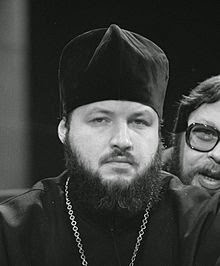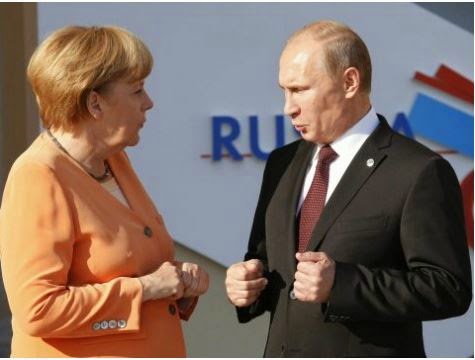"... promotion of certain radical elements into Ukraine’s parliament (the Verkhovna Rada), such as the Svoboda Party and Radical Party, remains a serious concern .." (RT Published time: October 27, 2014 22:40)
 |
| Lavrov after the Ukrainina election results |
"Russian propaganda describing the Ukrainian government as fascist took a hit on Monday when the far-right Svoboda party apparently failed to maintain its place in national politics by receiving less than the 5-percent threshold required to enter the legislature.
Senior figures among the various Jewish communities and organizations expressed pleasure at the widespread support for the pro-western blocs of President Petro Poroshenko and Prime Minister Arseny Yatseniuk, which together took just over 43% of the vote as of Monday evening, with 63% of the ballots counted."
 |
| Jews praying in Donetsk |
" Ukraine’s parliamentary election delivered a stinging rebuttal to Russia’s claims that this year’s pro-Western revolution was galvanized by fascism and anti-Semitism.
Far-right and nationalist parties, long singled out by Russia as prime evidence of the revolution’s extremist character, suffered a series of stunning setbacks."
Why, then, are even Putin's 'academics' railing at a conference held in Moscow last week on the history of Nazi war crimes that,
"There is not much difference, the Russian historians suggested, between the actions of the Ukrainian military in its war against separatist rebels and the atrocities that Hitler’s forces committed during World War II." as reported by Simon Shuster in Moscow. (October 29 2014)
Shuster also states that, "Vladimir Putin has turned the idea of fascism into a political tool, and now Russian historians are adapting to the Kremlin line." (my emphasis)
Rather presciently, Sven Borsche, the German co-chairman of the conference, began to feel that something was amiss in Moscow as soon as he met his Russian hosts. “All they wanted to talk about was the conflict in Ukraine,” he says.
 |
| Sven Borsche |
 |
| Marine Le Pen met with State Duma Speaker Sergei Naryshkin (right) and Deputy Prime Minister Dmitri Rogozin |
 |
| Neo-Nazi Nick Griffin of the British BNP Party in Russia |
That he is ramping up for a war is also evidenced by the fact that NATO is reporting a rise in Russian Military flights over Europe.
A NATO statement yesterday (29 Oct 2014) stated that,
"...Russian aircraft were detected flying over the Black Sea, the Baltic Sea, the North Sea and the Atlantic Ocean, prompting fighter jets from Nato member states to intercept and follow them.
Overall, Nato said it had intercepted Russian aircraft more than 100 times so far this year - three times more than it did last year." (my emphasis)
What is disconcerting about these flights is that these Russian military aircraft " ... pose a potential risk to civilian aviation because the Russian military often does not file flight plans or use on-board transponders." (CNN News 30 Oct 2014)
Even the Swedes are becoming nervous, having spent the past week trying to find a submarine lurking in its waters. Just last month," .. Sweden protested to Moscow after two Russian fighter jets entered its airspace. And across the Baltic in Estonia, an intelligence official working close to the border was abducted by Russian agents and taken to Moscow."
 |
| Ingaro Bay searched by Swedish Navy |
All this activity is changing security calculations across the region. Sweden has already announced defence spending is going to go up, and Latvia's foreign minister said the Swedish sub search could become a game changer." (BBC News 26 Oct 2014)
Then we have that recent encounter between Norwegian scientists and a Russian submarine. (Ali Kefford 28 Oct 2014)
Is this part of Putin's plan to send 6000 troops to what is known as an area rich in oil and gas? This should be seen alongside the fact that Russia is building a military town in the Arctic.
(Ria Novosti 30/10/2014)
 |
| Modular Russian Military Base been built in Arctic |
We know that "Kremlin Chief of Staff Sergei Ivanov was forced to address concerns when Putin cut down on foreign travel and delayed a trip to Japan in 2012. The president was suffering from a "minor sports injury," Ivanov said at the time." (Andre F. Puglie)
Dmitry Peskov ( October 29, 2014), Putin's spokesman, has ridiculed US media reports that the Russian strongman may be suffering from cancer, saying he was fine and that journalists should "shut their trap".
(to be continued)
































